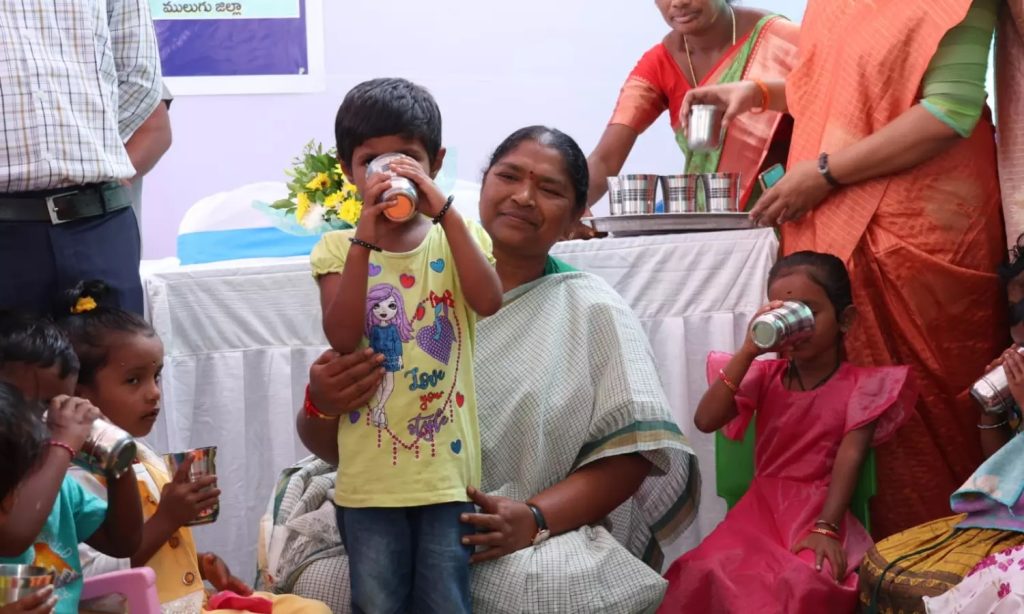
Mulugu district administration integrates daily milk supply with Anganwadi centers, targeting nutritional security for thousands of children and mothers.
The Mulugu district administration in India has taken a decisive, strategic step to combat malnutrition by launching a comprehensive, integrated milk supply program aimed at beneficiaries of the Integrated Child Development Scheme (ICDS). This initiative ensures that nearly 10,000 children between the ages of three and six, as well as approximately 3,000 pregnant and lactating mothers, receive a consistent daily supply of milk through the region’s network of Anganwadi centers. The program leverages the established social welfare infrastructure to deliver essential protein and calcium.
The scheme’s foundational goal is to drastically reduce or entirely eliminate malnutrition within the district, which is home to a significant tribal population. The Mulugu District Collector, Ila Tripathi, stated that the milk distribution is a critical component of the overall welfare strategy, highlighting the administration’s commitment to ensuring nutritional security for its vulnerable populations. This targeted, daily provision of a high-quality protein source like milk is a direct effort to improve cognitive development and physical health outcomes across the region.
A crucial aspect of the initiative is its structure, which guarantees both quality and consistency. Milk will be supplied through the Anganwadi centers every single day of the week, ensuring reliability that traditional supplemental feeding programs sometimes lack. The daily quantity provided is significant: 200 ml of milk per day is allocated to each pregnant and lactating mother, while the children receive 100 ml per day. This structured approach provides dairy manufacturers and suppliers with a robust, reliable, and high-volume demand contract.
The program is a powerful case study in localized, results-driven governance focused on welfare. The District Collector emphasized that the administration would “review the situation” after the scheme is fully operational and implement any necessary changes to maximize the nutritional benefits and the program’s efficiency. This commitment to data-driven governance and continuous improvement is essential for sustaining the program’s long-term effectiveness in a large-scale public distribution environment.
Ultimately, Mulugu’s initiative serves as a successful model for integrating dairy products into government social welfare programs to address public health challenges. By prioritizing the supply of milk to the region’s most vulnerable groups—young children and mothers—the district is not only investing in the immediate health of its citizens but also laying a healthier, more stable foundation for the future workforce. This program provides clear data on the role of dairy economics in achieving critical national nutritional goals.
Source: Review the full report on the nutritional initiative from Deccan Chronicle.
You can now read the most important #news on #eDairyNews #Whatsapp channels!!!
🇮🇳 eDairy News ÍNDIA: https://whatsapp.com/channel/0029VaPidCcGpLHImBQk6x1F

















